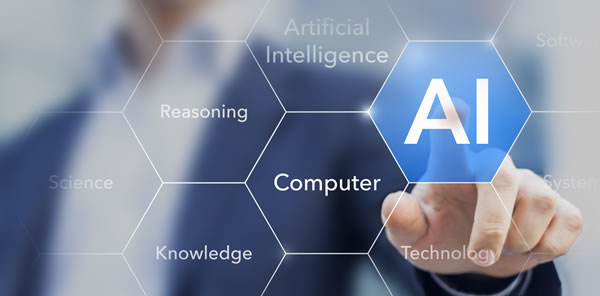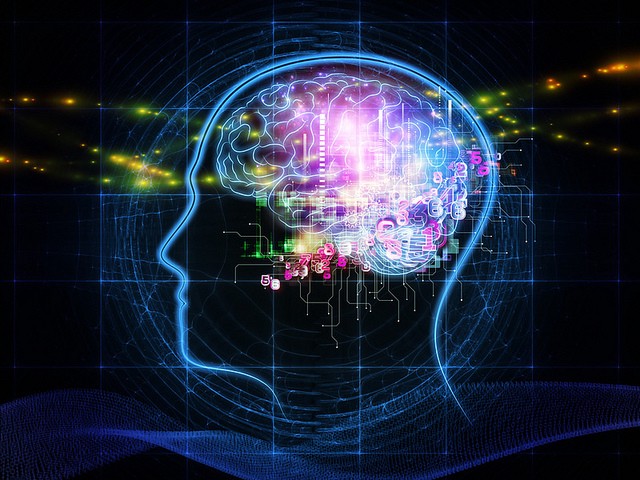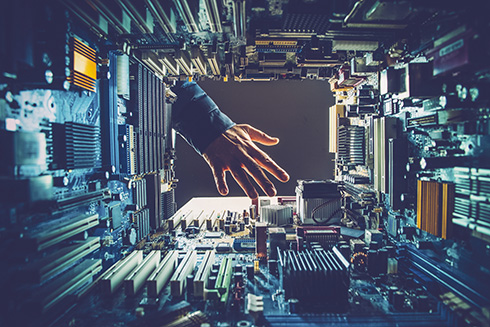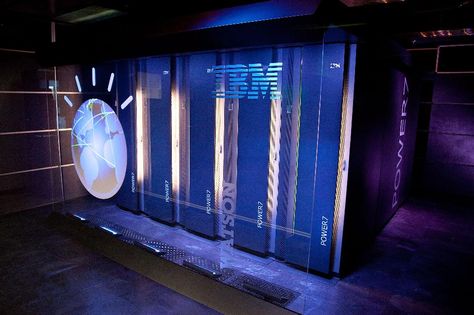Artificial Intelligence: Changing the Education Paradigm
For decades, it has been portrayed by various science fiction authors, futurists and movie makers that the advent of Artificial Intelligence (AI) will bring changes as we have never seen before. However, since my days as graduate student in the US in mid 1980s, when I took first course in AI, things have not progressed as quickly as we had thought then. But, in last five years, we have seen renaissance in the field of AI and many path breaking innovations have been made. Though humanoid robot serving as a teacher may still be a couple of decades in the future. However, approaches using AI to assist students and teachers to improve their educational experiences are making a headway in the cocooned world of education.
Quick recap of what constitutes AI?

Artificial Intelligence is an area of multi-disciplinary research on how to make a system which can think, behave and act exactly or better than a human being can act or react. AI has traditionally evolved from four subjects, i.e., psychology, philosophy, mathematics and linguistics, and it falls into the following categories.
- Think humanly: to make a system which can think like human being, where in the system can grasp information and process that information
- Act humanly: to develop a system which can mimic human behavior using the concepts akin to human thought processes.
- Think rationally: to make system which can think sensibly and wisely, on the basis on available facts and logic rules.
- Act rationally: which can act in a rational on the basis of available facts and goals that they lead to.
Advances in Artificial Intelligence

In the recent times, there have been large strides in area of AI, as it seeks the power to probe the universe and change our humanity in a profound way. It has been growing exponentially for past one decade and has been touching our life in ways which we may not notice. For example, every time we go on google search, some kind of AI being used to show us the best result. Every time we ask serial questions, natural language processing and speech recognition techniques are deployed. However, the backbone of the AI is the machine learning. We want to make machines learn based on knowledge and make decisions. The decision making improves in an adaptive way as the process reiterates.
AI poses Challenges
It is a fact that AI is already here and slowly becoming pervasive. Today’s biggest fear is that once AI becomes ubiquitous; what happens to our economy. How many drivers will we need, when self- driving car make deep inroads with intelligence assistance? How many travel agents still we need, when our cellphone assistant can book a flight for us? How many customer support agent do we need, when we can use machine learning to extract the right answer from thousands of pages of help center content. How many employees do we still need in the back office of a bank, when that process can be potentially handled by Chatbots? In reality, the demand for certain jobs will decrease, particularly the routine jobs. This question can also be extended to include what would tomorrow’s human teachers do?
AI also creates Opportunities
Though the Artificial intelligence and robotics will massively take over routine and repetitive activities, but humans will remain irreplaceable for situations involving social contact, empathy and exchange. The future economic growth will come from non-routine creative knowledge work. Incidentally, there are unlimited problems in the current world and it will continue to be so. Therefore, any work that aims to design solutions to solve problems of the world will come in preeminence. The fundamental human qualities will therefore become paramount. Further, Artificial Intelligence may help, facilitating collaborative learning and group work. These practices make learning faster and improve social skills. The tomorrow’s teachers will then become designers of these AI based learning systems, their knowledge will get embodied in them. More and newer fields of knowledge will get discovered.

Teaching and learning processes will get transformed in an AI assisted world
Although, the progress in the AI field has been impressive in recent years, however, in the field of education, its potential remains untapped. With the application of AI in education, the teacher can be freed from certain routine tasks and she may concentrate on creating links with students, getting to know them, guiding them towards mastery of employability skills and also to accompany them in their journey towards their development as human beings. Teachers may not worry too much about losing their place with the arrival of AI and other new technologies. Yes, part of the instruction can be AI assisted, but inspiring, valuing, loving or, in short, educating are acts that no intelligent robot or computer can accomplish.
In this new paradigm of education, the roles of learners and their teachers get redefined. The learner plays a major role in her learning. She must succeed in a succession of challenges that allow her to acquire the basic knowledge and technical skills that are presented to her in an AI assisted mode in an adaptive learning way till she masters them. She is supported by technology that adapts to her personal learning goals. The AI algorithms can offer resources and products based on their query history on the web and thus, offer students personalized learning according to their needs. Artificial intelligence can make its contribution where teachers need it most, in the personalization of teaching. The intelligent learning system will interact with students through a variety of means (visual, auditory, kinesthetic) and elements of virtual and augmented reality. This will enrich the learning process.
The possibilities for applying artificial intelligence to teaching are multifarious. As Joel Mokyr, a professor of economic history at Northwestern University, says, “I doubt we can ever dispense with human teachers. But a professor assisted by intelligent machines learning about each student, comparing him with millions of others and choosing the best approach for his profile, would be even better. Artificial intelligence does not compete with us, it complements us, makes us better, more intelligent, better informed. It does not replace individuals, it makes them more effective. Considering how much education needs to evolve, it is better!”
Five innovations of Artificial Intelligence in Education
Education has been known as a sector where adaptation of technology moves rather slowly. Though in recent times, with the advent of several Ed-Tech companies, the teaching and learning processes see wider usage of innovative tools including those based on AI and Chatbots to improve the students’ experience. Already a lot of action is underway, but we would like to summarize few applications that may make an impact in near term:
1) Automated evaluation
One of the biggest challenges today for teachers is to grade assignments and quizzes, especially in large format classrooms. This problem has been accentuated with the advent of MOOCS where thousands of students enroll.
There are already several applications like Socrative and eClicker to create multiple-choice questions that automatically correct themselves. In addition, the majority of learning platforms such as Didacti, Moodle, Khan Academy and Netmaths offer self-corrective questions or tools to create them. In the near future, tools will eventually be able to correct short answers and even extensions to grading of essays. This unburdening means that the teachers can spend more time on student interactions, in class activities and for their own professional development.
2) Personalization of learning for students
It is well known that individuals need customization of their learning methodology. This is one area where Artificial Intelligence is likely to play a major role. AI based tools respond to the individual need of the students putting more emphasis on certain topics, repeating content that student has not yet mastered, and generally, assisting students to learn at their own pace.
As AI advances in the coming years, adapted learning programs will add more personalization and gamification to learning process.
3) Assisted improvements in teaching content and pedagogy
AI, coupled with Analytics, can provide improvement suggestions to teachers in their course design, content and educational materials. Based on analytics that runs on large student data, a pattern is generated which pinpoints where majority of students are finding a concept difficult to understand or confusing. This, then, is processed by AI engine to suggest specific improvements to the concerned teacher. This is no longer science fiction as the MOOC platform Coursera has already set up a system of this kind to improve their online courses.
4) Emergence of Chatbot as virtual teachers and facilitators
Many universities such as Georgia Institute of Technology in USA and Deakin University in Australia are experimenting with development of teacher assistant and campus facilitators by using the power of IBM’s AI system Watson.

The replacement of human tutor by a fully AI based system is not happening soon. However, some developments have been made on tutoring programs based on AI, especially in basic sciences area where such program can teach basic fundamentals to the students.
5) Anytime, Anywhere, Anyone based learning experience
By using AI system, potentially students can learn from anywhere in the world, anytime. This also permits selection of automated virtual tutors (Chatbots). In coming decades, these AI based programs will grow and will offer a much wider range of learning services.
Does this means the demise of the school? Probably not, since the teacher will always represent as a guiding force to help the student develop his opinions and validate the information. In future, teachers will supplement AI lessons, assist students who would be facing difficulties and provide human interaction and experience for students.
Artificial Intelligence is helping in evolution of Education 4.0
One of the imperatives of the Fourth Industrial Revolution is human capital enhancements to be able to meet the knowledge and skills requirements. This, puts demand on knowledge production and innovation applications of knowledge. Further, changes in reading and learning habits of generation Z need that educationalists devise new pedagogical techniques. The rapid pace of emergence of Industry 4.0 requires that Education 4.0 also leapfrogs from the current Education 2.0 framework.
Innovation Producing Education 4.0 has following characteristics:
- Built through selective individual and team-driven focused innovations practices. This is where AI based learning systems are assisting in providing personalized learning inputs leading to innovation.
- The direct input of learners act as a major source of tech evolution in the service of innovation production. The AI innovations such as Chatbots, Machine Learning and Predictive Analytics lead to evolution of innovative tools to do so.
- Amplified by positive innovation feedback loops; ubiquitously and creatively 24/7 in all phases of living, learning and working. This again is being assisted by AI based learning which provides continuous feedback to improve the learning process.
- In the globally networked human body, a continuously evolving AI based learning systems are innovatively supplementing learning at anytime, anyplace and through anyone.
Therefore, the interplay of Artificial Intelligence with education is leading us towards the cherished goal of evolving to Education 4.0.
No token or token has expired.
Deprecated: Function get_magic_quotes_gpc() is deprecated in /home1/silvege7/public_html/paradigmconsultant.com/wp-includes/formatting.php on line 4371
